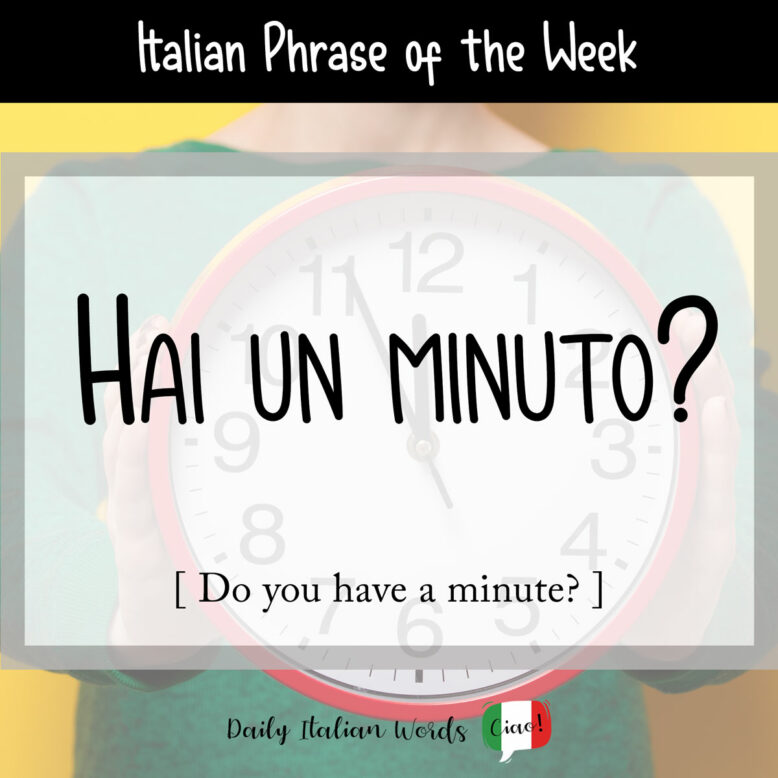In both Italian and English, a common way of informally asking to have a quick word with someone is:
Hai un minuto?
Do you have a minute?

This phrase breaks down in the following way:
hai
The second person singular present indicative of avere (to have). It is pronounced /ai/ without the /h/.
un
The masculine, singular indefinite article, shortened from uno due to a linguistic phenomenon called apocope.
minuto
The word for minute in Italian.
Note: Subject pronouns can be dropped in Italian if the subject is clear from the context, which is why tu (informal you) does not appear in this question.
You can answer the question by saying certo (of course) if you have time, or No scusa, adesso non posso (Sorry no, I can’t right now) if you’re in a hurry or running late.
Another way to answer in an affirmative and friendly manner is anche due se vuoi, or just anche due. You’re literally saying that you have, not one, but two minutes, meaning that you have time.
Scusa Paolo, hai un minuto? – Anche due! Come posso aiutarti?
Sorry Paolo, do you have a minute? – Of course. How can I help?
If you are talking to someone with whom you have a more formal relationship, such as your boss or a client, it is best to use avere‘s third person formal form ha. In this case, the speaker might include the subject pronoun Lei, or even the name of the person, because it makes the sentence sound more polite.
If you want to be even more polite, you can add per me (lit: for me) or da dedicarmi (lit: to dedicate to me) after minuto, or introduce the question with Scusi or Mi scusi (Sorry / Excuse me).
Mi scusi Sig. Rossi, ha un minuto da dedicarmi?
Excuse me Mr. Rossi, do you have a minute for me?

Some alternative ways of asking the same question include:
- Hai un secondo? = Do you have a second? (informal)
- Ha un secondo? = Do you have a second? (formal)
- Hai un attimo (di tempo)? = Do you have a moment? (informal)
- Ha un attimo (di tempo)? = Do you have a moment? (formal)
Finally, there is the expression rubare un minuto (lit. to steal a minute).
Mario, posso rubarti un minuto? Ho bisogno di un parere su quest’articolo.
Mario, can I steal a minute of your time? I need an opinion on this article.
Heather Broster is a graduate with honours in linguistics from the University of Western Ontario. She is an aspiring polyglot, proficient in English and Italian, as well as Japanese, Welsh, and French to varying degrees of fluency. Originally from Toronto, Heather has resided in various countries, notably Italy for a period of six years. Her primary focus lies in the fields of language acquisition, education, and bilingual instruction.


